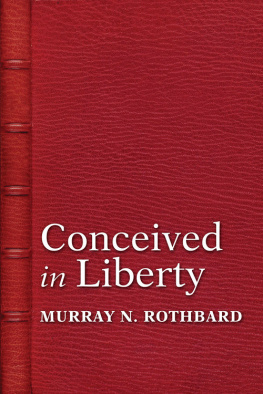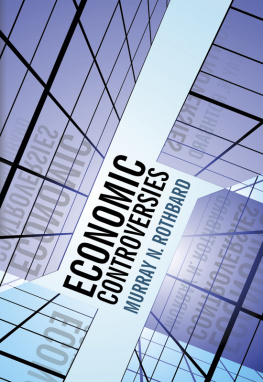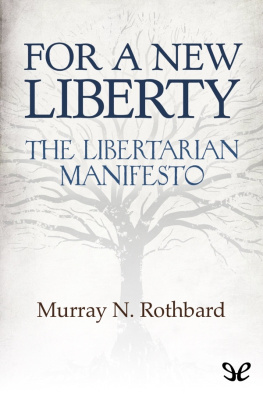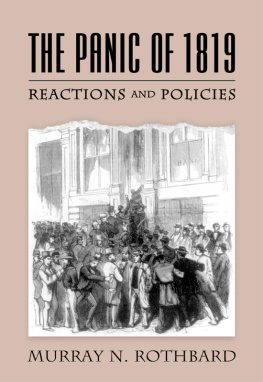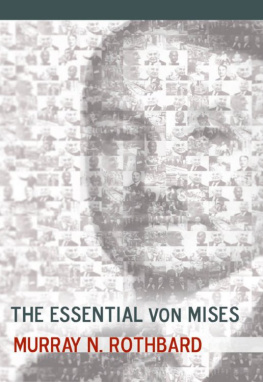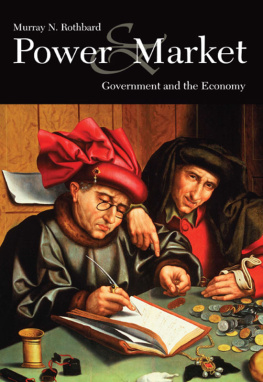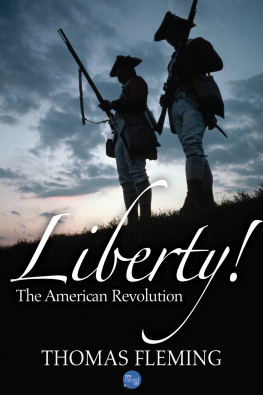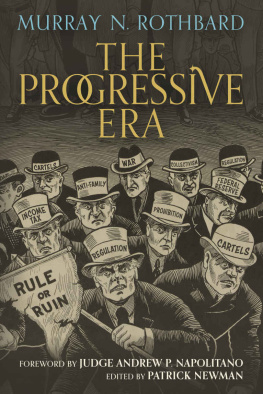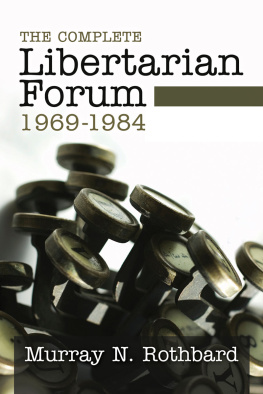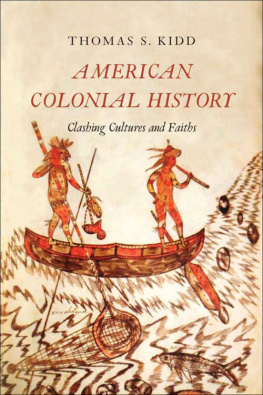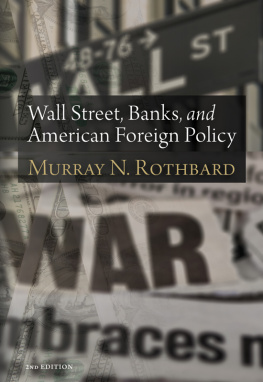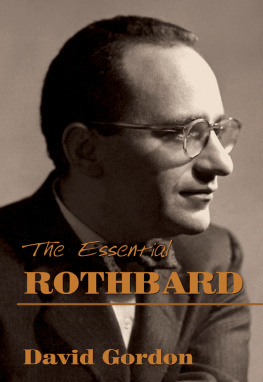CONCEIVED
IN
LIBERTY
VOLUMES 1-4
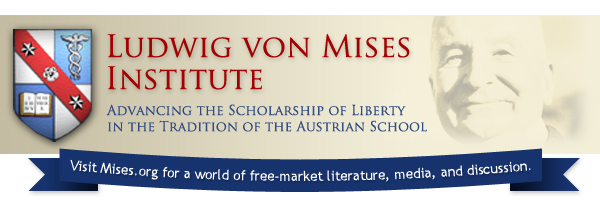
CONCEIVED
IN
LIBERTY
VOLUME I
A NEW LAND, A NEW PEOPLE:
THE AMERICAN COLONIES IN
THE SEVENTEENTH CENTURY
MURRAY N. ROTHBARD
Copyright 1999 by the Ludwig von Mises Institute, 518 West Magnolia Avenue, Auburn, Alabama 36832-4528. The first edition was published in 1975 by Arlington House, Publishers.
All rights reserved. Written permission must be secured from the publisher to use or reproduce any part of this book, except for brief quotations in critical reviews or articles.
ISBN: 0-945466-26-9
The Ludwig von Mises Institute dedicates this volume to all of its generous donors, and in particular wishes to thank these Patrons:
Gary G. Schlarbaum
Stephen W. Modzelewski
James L. Bailey
James Bailey Foundation
Bill D. Brady
Brady Industries
Jerome Bruni
The Jerome V. Bruni Foundation
W.W. Caruth, III
Barbara Bullitt Christian
G. Douglas Collins, Jr.
Mr. & Mrs. Willard Fischer
Larry R. Gies
Mr. & Mrs. William W. Massey, Jr.
Richard McInnis
E.H. Morse
Mr. & Mrs. Victor Niederhoffer
Niederhoffer Investments, Inc.
Mr. & Mrs. Mason Pearsall
Don Printz, M.D.
James M. Rodney
Sheldon Rose
Menlo Smith
Sunmark Capital Corp.
Lawrence Van Someren, Sr.
Mark M. Adamo
Maurice Brainard Family Trust
Richard Bleiberg
John Hamilton Bolstad
Mr. & Mrs. J.R. Bost
Mr. & Mrs. Justin G. Bradburn, Jr.
Dr. John Brtland
John W.T. Dabbs
Sir John & Lady Dalhoff
John W. Deming
Dr. & Mrs. George G. Eddy
Roger L. Erickson
Dr. Larry J. Eshelman
Bud Evans
Harley-Davidson of Reno
Mr. & Mrs. Walter A. Frantz, III
Douglas E. French
Albert L. Hillman, Jr.
Donald L. Ifland
Michael L. Keiser
Jim Kuden
Arthur L. Loeb
Roland Manarin
Joseph Edward Paul Melville
Robert A. Moore
James A. OConnor
James ONeill
Michael Robb
Mr. & Mrs. John Salvador
Conrad Schneiker
Mr. & Mrs. Edward Schoppe, Jr.
Jack DeBar Smith
Mr. & Mrs. Allan R. Spreen
William V. Stephens
Byron L. Stoeser
J. Billy VerPlanck
Mr. & Mrs. Quinten E. Ward
Dr. Thomas L. Wenck
David Westrate
Betty K. Wolfe
Walter Wylie
Whenever the legislators endeavour to take away and destroy the property of the people, or to reduce them to slavery under arbitrary power, they put themselves into a state of war with the people, who are thereupon absolved from any farther obedience, and are left to the common refuge which God hath provided for all men against force and violence.
John Locke
Contents
Preface
What! Another American history book? The reader may be pardoned for wondering about the point of another addition to the seemingly inexhaustible flow of books and texts on American history. One problem, as pointed out in the bibliographical essay at the end of this volume, is that the survey studies of American history have squeezed out the actual stuff of history, the narrative facts of the important events of the past. With the true data of history squeezed out, what we have left are compressed summaries and the historians interpretations and judgments of the data. There is nothing wrong with the historians having such judgments; indeed, without them, history would be a meaningless and giant almanac listing dates and events with no causal links. But, without the narrative facts, the reader is deprived of the data from which he can himself judge the historians interpretations and evolve interpretations of his own. A major point of this and succeeding volumes is to put back the historical narrative into American history.
Facts, of course, must be selected and ordered in accordance with judgments of importance, and such judgments are necessarily tied into the historians basic world outlook. My own basic perspective on the history of man, and a fortiori on the history of the United States, is to place central importance on the great conflict which is eternally waged between Liberty and Power, a conflict, by the way, which was seen with crystal clarity by the American revolutionaries of the eighteenth century. I see the liberty of the individual not only as a great moral good in itself (or, with Lord Acton, as the highest political good), but also as the necessary condition for the flowering of all the other goods that mankind cherishes: moral virtue, civilization, the arts and sciences, economic prosperity. Out of liberty, then, stem the glories of civilized life. But liberty has always been threatened by the encroachments of power, power which seeks to suppress, control, cripple, tax, and exploit the fruits of liberty and production. Power, then, the enemy of liberty, is consequently the enemy of all the other goods and fruits of civilization that mankind holds dear. And power is almost always centered in and focused on that central repository of power and violence: the state. With Albert Jay Nock, the twentieth-century American political philosopher, I see history as centrally a race and conflict between social powerthe productive consequence of voluntary interactions among menand state power. In those eras of history when libertysocial powerhas managed to race ahead of state power and control, the country and even mankind have flourished. In those eras when state power has managed to catch up with or surpass social power, mankind suffers and declines.
For decades, American historians have quarreled about conflict or consensus as the guiding leitmotif of the American past. Clearly, I belong in the conflict rather than the consensus camp, with the proviso that I see the central conflict as not between classes, (social or economic), or between ideologies, but between Power and Liberty, State and Society. The social or ideological conflicts have been ancillary to the central one, which concerns: Who will control the state, and what power will the state exercise over the citizenry? To take a common example from American history, there are in my view no inherent conflicts between merchants and farmers in the free market. On the contrary, in the market, the sphere of liberty, the interests of merchants and farmers are harmonious, with each buying and selling the products of the other. Conflicts arise only through the attempts of various groups of merchants or farmers to seize control over the machinery of government and to use it to privilege themselves at the expense of the others. It is only through and by state action that class conflicts can ever arise.
This volume is the story of the seventeenth centurythe first century of the English colonies in North America. It was the century when all but one (Georgia) of the original thirteen colonies were founded, in all their disparity and diversity. Remarkably enough, this critical period is only brusquely treated in the current history textbooks. While the motives of the early colonists varied greatly, and their fortunes changed in a shifting and fluctuating kaleidoscope of liberty and power, all the colonists soon began to take on an air of freedom unknown in the mother country. Remote from central control, pioneering in a land of relatively few people spread over a space far vaster than any other they had ever known, the contentious colonists proved to be people who would not suffer power gladly. Attempts at imposing feudalism on, or rather transferring it to, the American colonies had all failed. By the end of the century, the British forging of royal colonies, all with similar political structures, could occur only with the fearsome knowledge that the colonists could and would rebel against unwanted power at the drop of a tax or a quitrent. If the late seventeenth-century Virginia rebel Nathaniel Bacon was not exactly the Torchbearer of the Revolution, then this term might apply to the other feisty and rambunctious Americans throughout the colonies.

